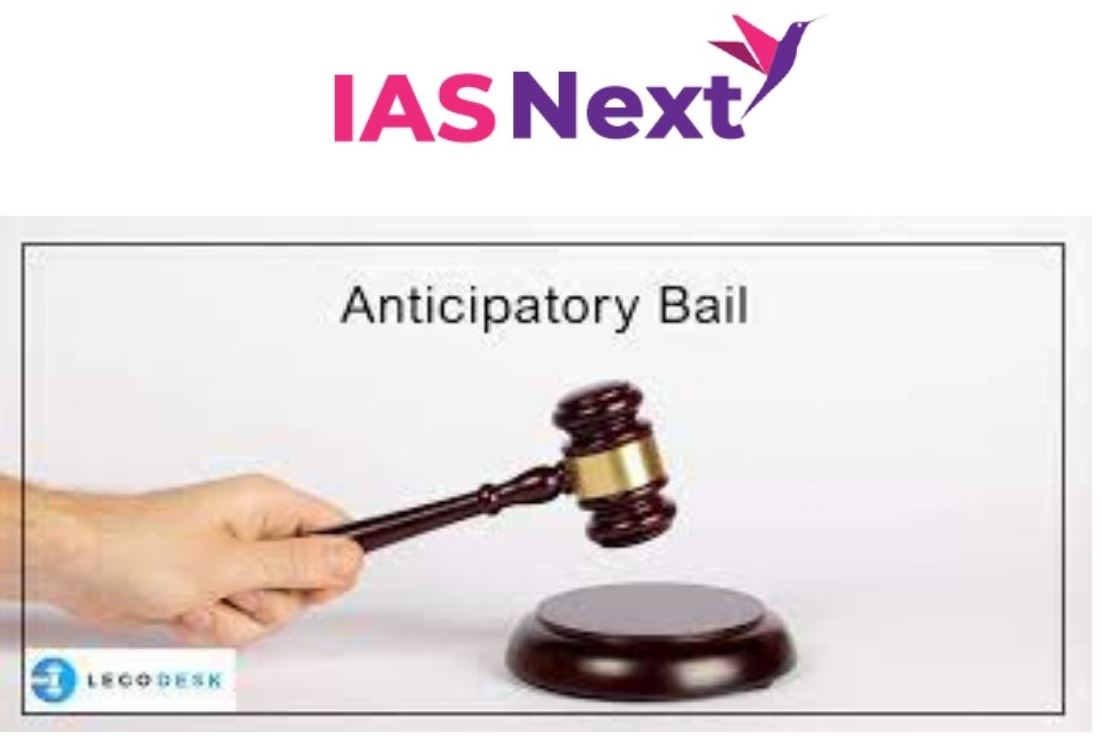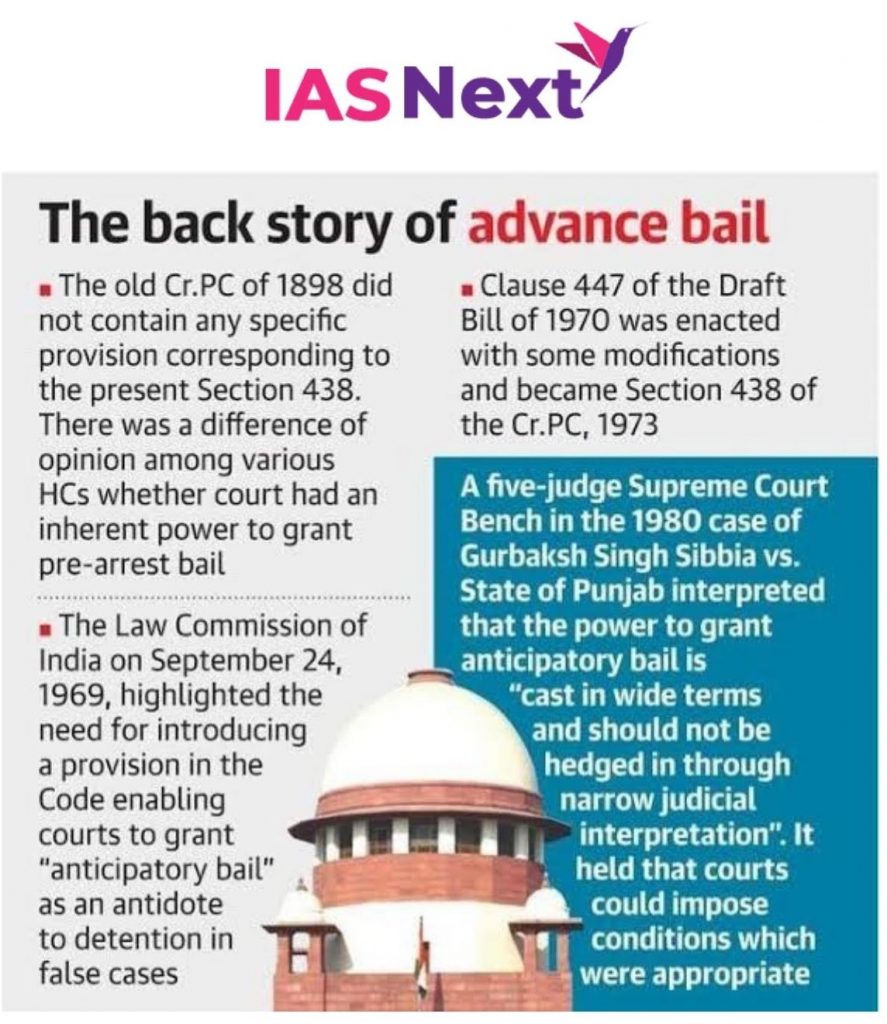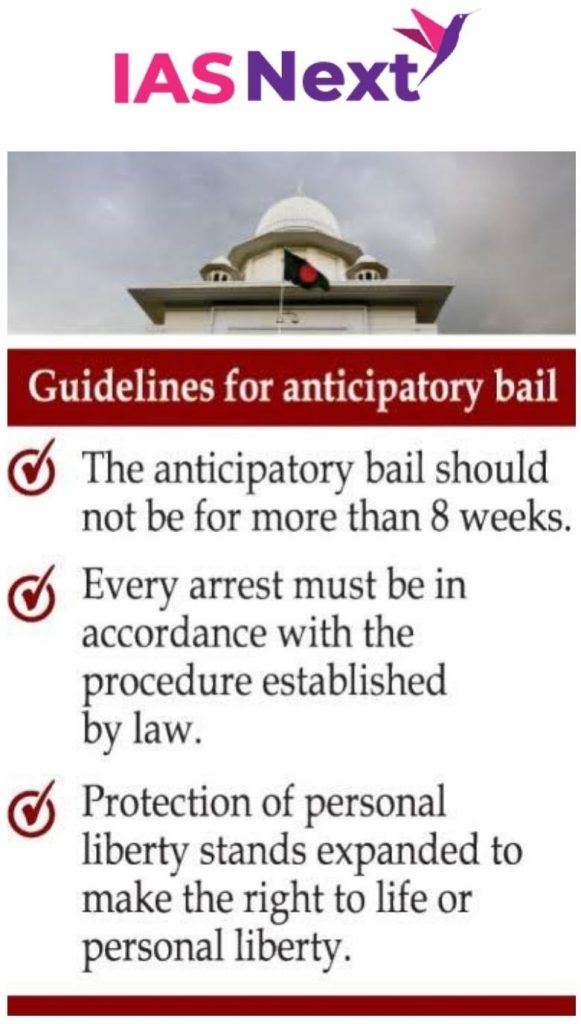CURRENT AFFAIRS
Get the most updated and recent current affair content on Padhaikaro.com
Anticipatory bail in India
- IAS NEXT, Lucknow
- 20, Oct 2021

The Supreme Court has held that a superior court can set aside an anticipatory bail order if there was enough material to suggest that factors like gravity of the offence and the role of the accused in the crime were not considered by the lower court.
The concept of anticipatory bail:
- The provision of anticipatory bail under Section 438 was introduced when CrPC was amended in 1973.
- As opposed to ordinary bail, which is granted to a person who is under arrest, in anticipatory bail, a person is directed to be released on bail even before arrest made.
- Time limit: The Supreme Court (SC) in Sushila Aggarwal v. State of NCT of Delhi (2020) case delivered a significant verdict, ruling that no time limit can be set while granting anticipatory Bail and it can continue even until the end of the trial.
- It is issued only by the Sessions Court and High Court.

Significance:
- The reason for enactment of Section 438 in the Code was parliamentary acceptance of the crucial underpinning of personal liberty in a free and democratic country.
- Parliament wished to foster respect for personal liberty and accord primacy to a fundamental tenet of criminal jurisprudence, that everyone is presumed to be innocent till he or she is found guilty.
Recent observations made by the Supreme Court on its usage?
- HCs and SC are given powers to grant anticipatory bail to the accused because of the premium that the Constitution places on the right to liberty guaranteed under Article 21.
- The grant or rejection of an application under CrPC has a direct bearing on the right to life and liberty of an individual. Therefore,
the provision needs to be read liberally, and considering its beneficial nature. The courts must not read in restrictions that the legislature have not explicitly provided for.
- In doing so, the court may also exercise its powers under Article 142 of the Constitution to pass such an order.

Need for such protection:
An accused, besides being an accused, may also be the primary caregiver or sole breadwinner of the family. His arrest may leave his loved ones in a state of starvation and neglect.
- In the 1980 Gurbaksh Singh Sibbia vs State of Punjab case, a five-judge Supreme Court bench led by then Chief Justice Y V Chandrachud ruled that 438 (1) is to be interpreted in the light of Article 21 of the Constitution (protection of life and personal liberty).